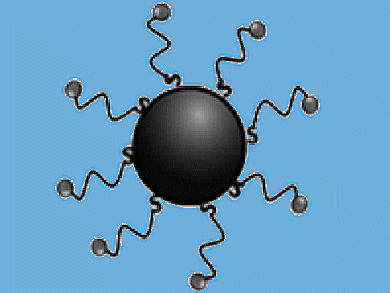The initial entry of HIV-1 into host cells remains a compelling yet elusive target for the development of agents to prevent infection, a significant need in the fight against the global AIDS epidemic. Led by Irwin Chaiken, a collaborative research group at Drexel University and Drexel University College of Medicine (Philadelphia, PA, USA) has demonstrated that modified peptide triazole inhibitors which specifically target the HIV-1 envelope (Env) protein gp120 can physically disrupt virus particles in the absence of host cells. Peptide triazole inhibitors bind to Env with high affinity, suppress interactions of Env at its host cell receptor binding sites, and inhibit cell infection by a broad range of virus subtypes.
The Drexel team’s novel antagonist design and characterization data could lead to the creation of virucides to suppress initial HIV-1 infection, viremia in infected individuals, and the spread of infection between individuals. Such agents could be used for HIV-1 microbicides and therapeutics. The group’s results also suggest that ligand-specific pathogen rupture may be possible for other viruses that contain metastable prefusion surface protein complexes, such as influenza, Ebola, and Dengue.
- Cell-Free HIV-1 Virucidal Action by Modified Peptide Triazole Inhibitors of Env gp120,
A. R. Bastian, Kantharaju, K. McFadden, C. Duffy, S. Rajagopal, M. R. Contarino, E. Papazoglou, I. Chaiken,
ChemMedChem 2011, 6 (08).
DOI: 10.1002/cmdc.201100177




